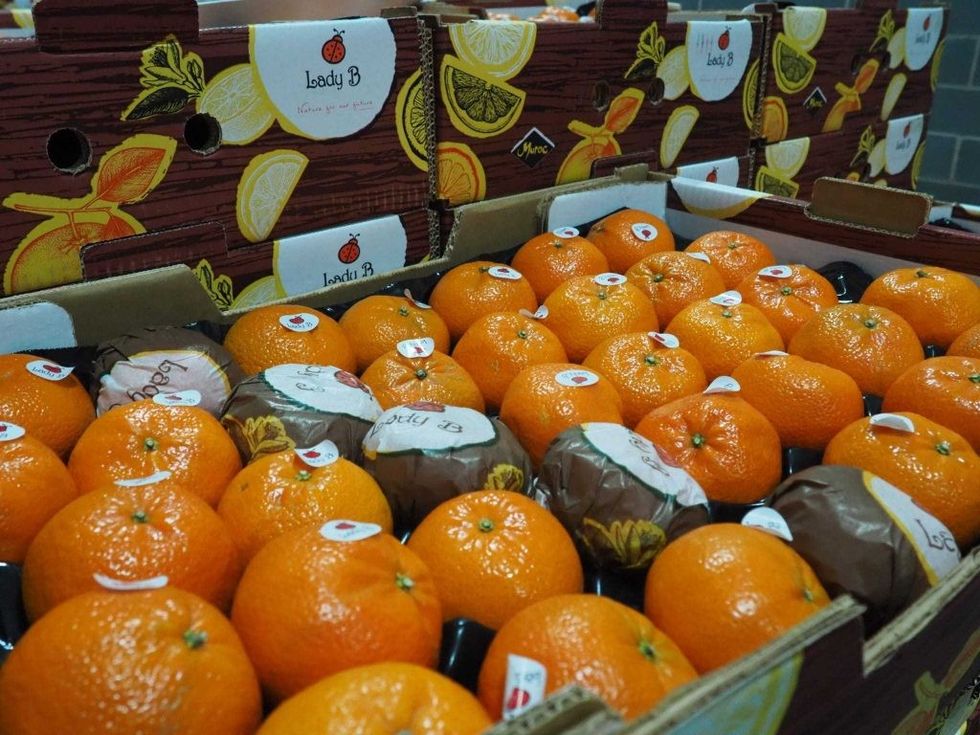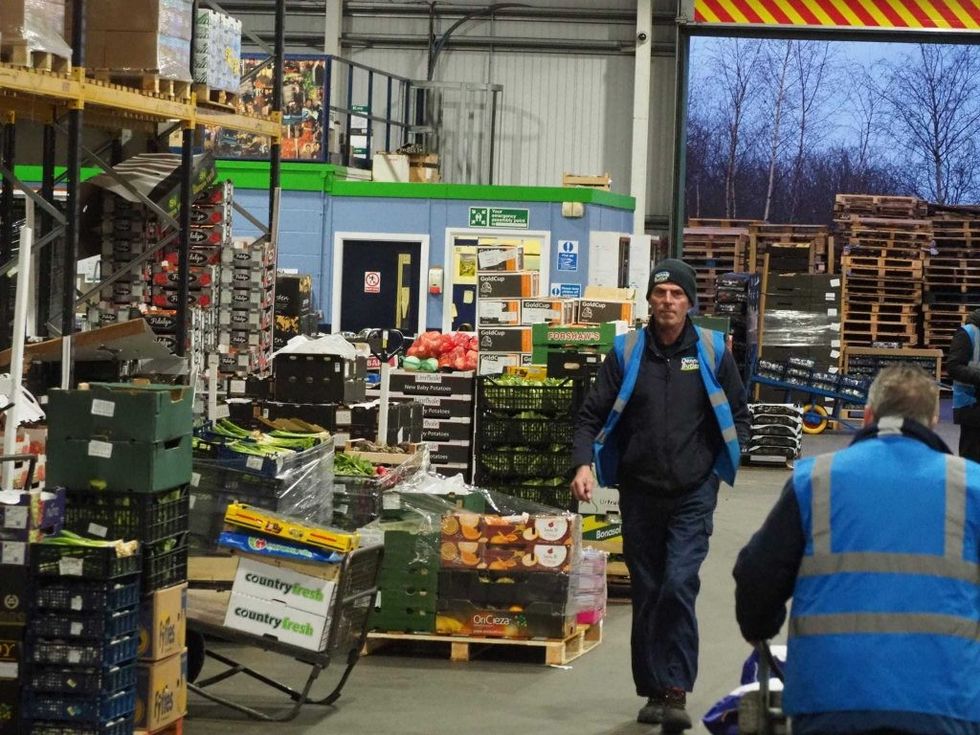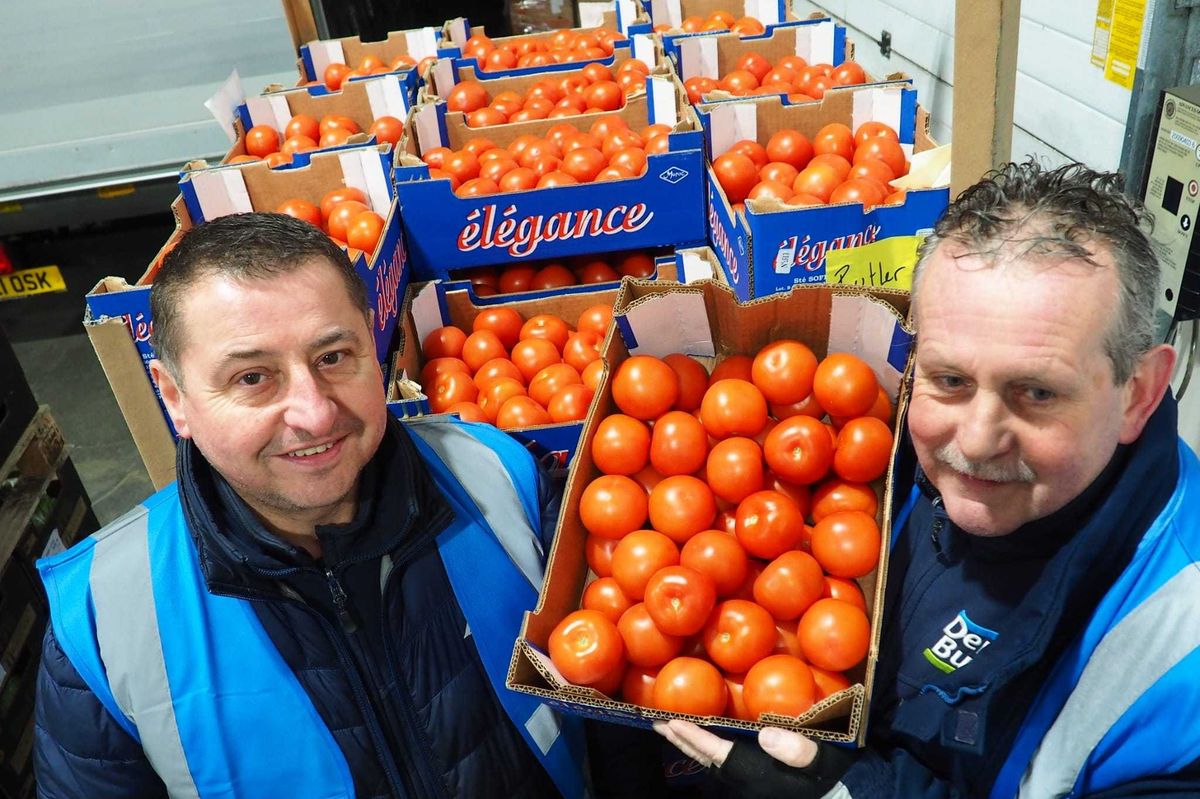Following a pandemic, rising inflation and soaring energy bills, people are now walking into shops to find empty shelves.
Supermarkets have seen supplies of tomatoes and other fresh produce, leaving shelves empty in one of the world’s most advanced economies.
Naturally it has left people asking why, with many pinning the blame on Brexit and rising energy bills, with poor conditions in food producing countries triggering shortages.
But for one Hull fruit and vegetables wholesaler, the seeds of the crisis lay within the way the industry works and unrealistic expectations of low prices from supermarkets.
Rob Darcy told LDRS bad growing conditions had tipped the scales in growers’ favour, meaning they can now demand much more for their product with supermarkets unwilling to pay.
‘The British public have been led to believe that fruit and vegetables cost next to nothing’
The director of Dennis Butler Ltd said factors like energy prices, climate change and uncertainty in the industry meant shortages may be around for some time.
The director said: “We’ve got plenty of fruit and vegetables here like tomatoes, cucumbers, lettuce.
“The difference for us is that we’re willing to pay a premium for it and our suppliers are greengrocers, market traders and other independents, we don’t work with supermarkets.
“At the moment everyone’s having to pay a premium to get fruit and vegetables.
“What you find is that most places on the continent have fruit and vegetables.
“The difference isn’t so much because of Brexit, which in effect just leaves us with more paper work to deal with, it’s that the British public have been led to believe that fruit and vegetables cost next to nothing.

“Supermarkets sell fruits and vegetables as a loss leader, people may remember seeing parsnips being sold in them for 19p at Christmas, but you can’t it at that price and make a profit.
“The reason why the supermarkets can’t get the vegetables now is because they they’re not willing to pay the prices growers can demand at the moment because of the conditions elsewhere.
“The worst thing for a supermarket is having to pay more than what they’re used to paying from their suppliers.
“In this country the problem is that we don’t have any small growers left anymore, we used to have hundreds.
“All that’s left now is a few huge growers who have to sell to supermarkets who have driven prices down.
“That’s where you get shortages from ultimately, because they’re false prices.”
People used to buying at ‘false prices’
Mr Darcy said UK consumers had gotten used to paying unrealistically low prices compared to buyers on the continent.
The director said: “If you go on holiday to somewhere like Spain and you go to a supermarket, you’ll notice that the fruit and vegetables cost a lot more.
“People there are used to paying more for it, even though they’re the places that are growing most of it.
“That situation’s brought them on now because with carrots for example, prices have gone up now because of bad growing conditions.
“So the big growers start to react to that by raising their prices.
“They can’t say they’ll just grow more, if they haven’t grown a particular crop in three or four years then they have to buy it all again which is a considerable investment.
“The crops aren’t going to just magic themselves up out of the ground.

“Then you’ve got the rising energy prices which is also a factor, in a country like The Netherlands they’re growing fruit and vegetables at this time of year but it’s in heated greenhouses which they increasingly can’t afford.
“I think if the public knew how little fruit and vegetables are being sold for there would be more support for British growers.
“It’s the independents who are sticking their necks on the line with this now, they’ve had to put their prices up but they can’t profit from it because it cost them so much to get the goods.
“If a box of tomatoes costs sellers £18 say, then they have to put up their prices too to cover it.
“They then have to pay wages, lighting, rent, a lot of things come out of the sale price before they can make a profit.
“They’re essentially breaking even to provide a public service at this point.
“At the moment a lot of fresh produce is brought here from abroad.
“It comes from Spain and Morocco mostly, they’re the biggest two producers.
“Their growing season comes to an end just as the English season starts.
“They start growing in the south first because it’s warmer down there, then it works its way up through places like Lincolnshire and further into the north.
“But this year there’s a shortage of English produce to start with because of things like fertiliser costs going up, as well as energy costs, so there’s not as much going into the ground.
‘No one can predict the future’
Mr Darcy said he believed the shortages could be long lasting.
The director said: “The English season doesn’t really come on until April, so you’re talking four to six weeks from now.
“And the disruption could go on much further into the long term because of things like climate change.
“We’re getting warm weather when it’s supposed to be cold, rain when it’s supposed to be dry, it plays havoc with growing produce.
“It only takes a small amount of less produce to create shortages because it’s that much in demand.
“There isn’t the volume of it there for supermarkets to buy because they’re buying vastly more in quantity than the independents are.
“It’s a very hard time to be in farming at the moment because of all this uncertainty, will they grow more when they don’t know how much more fertiliser’s going to cost?
“No one can predict the future.
“As far as the cost of living goes, from the point of view of sellers people only have so much money in their pockets, but food is important.
“But the problem is up until now more and more supermarkets have been allowed to open at a cost to independents because people thought the answer was their cheaply sold food.”

